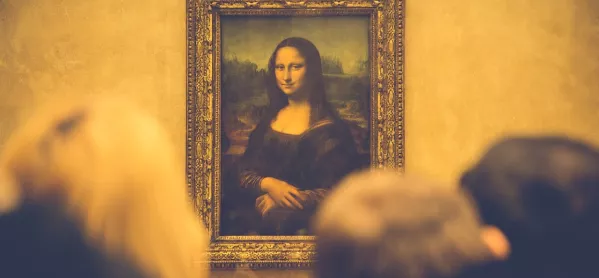“A poor life this if, full of care, we have no time to stand and stare?” - William Henry Davies
At a conference recently, I was on a panel talking about how to provide for our most disadvantaged pupils.
I started off by talking about three deficits that I thought might combine to capture the issue of disadvantage:
- A financial deficit - and the difficulties of getting to school fed and clothed having had somewhere safe to sleep the night before.
- An opportunity deficit, both in actuality because opportunities often cost money - and in the imagination because if you’re not used to being able to take opportunities you can miss some that would have been accessible.
- An attention deficit, in terms of having a home where rules and structures are predictable, where someone has time to care about the joys and stresses of your day, and in which you can receive advice from someone who is successfully navigating the adult world.
These are all big issues but as we discussed, asked, and answered questions, another deficit crystallised out of our thoughts: a deficit that I’d not considered when I’d contemplated the night before - a deficit of beauty. It’s a deficit that arises from the other disadvantages but one that takes on a life of its own.
Overcoming deficits
A lack of money means that families not only can’t buy beautiful things (and I include here music and literature as well as objets d’art) but also that those things that have been bought are not replaced and not always repaired when damaged: the minutiae of life become gradually degraded over time. If you can’t afford to go to concerts, galleries and museums, if you can’t afford to travel to see architecture or natural beauty then it becomes harder to take the opportunities that are freely available. The free galleries of London are more frequently frequented and Radio 3 (or Classic FM) more listened to by the middle classes because these are the ones who have learned that Turner and Beethoven have done worthwhile work and looking at the former and listening to the latter are joys that cost nothing (beyond the investment in a radio and the travel cost to central London - neither of which can be dismissed as hurdles).
Overcoming this deficit is hard and being disadvantaged is, as always, a disadvantage. In our house, there has been for the last decade an item of furniture we call the “Mister Maker” cupboard - a treasure-trove of craft materials to be raided whenever the urge to make beauty comes upon us. My children are lucky to have such a thing and it means they have developed their own artistic abilities to the point where they are interested in others. I’m not saying that you have to have painted to appreciate Picasso, but that the sense of ownership and investment that comes from having dabbled provides a starting point to engage with the masters.
Two questions arise from this musing: does it matter and what is to be done?
To the former, I answer yes: not only echoing William Henry Davies’ views of the value of a life with no opportunities to appreciate beauty, but also because of the enormous marketable value of creative skills and the inherent need in any artistic activity to feed on the work of others.
To the second question I have more hesitant and circumspect answers - I hope to be involved in more conversations with more groups and that over time we can find our way to solutions. For now, I offer only suggestions.
Providing for disadvantaged pupils
First, let us acknowledge the problem and realise that disadvantaged pupils who have had little experience of beauty are in a poor position to view it critically - we as teachers must decide what is worth looking at, listening to and reading.
Second (and contrariwise) let us remember that enjoyment of beauty is something that is learned as well as an innate response - we need both to design an access programme and to remember the final goal rather than be enamoured of the first steps.
Finally, we must remember the other deficits - each of which contributes to the beauty deficit - and do everything we can to mitigate the financial limitations and to provide in schools the opportunities and attention that might otherwise be lacking. Amid providing for all their other needs we need to find a way for our most disadvantaged pupils to “turn at Beauty’s glance, and watch her feet, how they can dance”.
James Handscombe is the principal of Harris Westminster Sixth Form. He tweets @JamesHandscombe
Want to keep up with the latest education news and opinion? Follow Tes on Twitter and Instagram, and like Tes on Facebook




